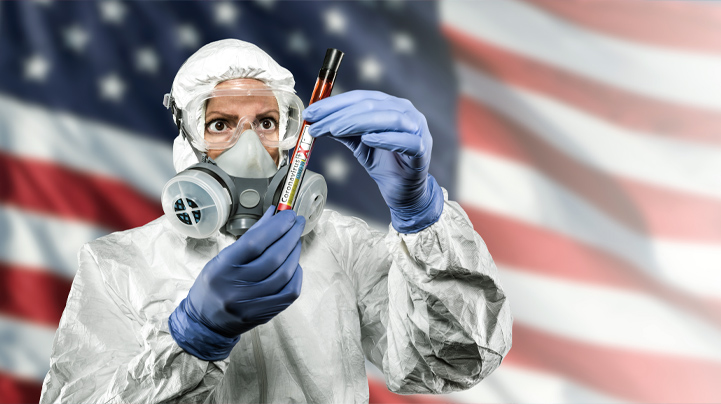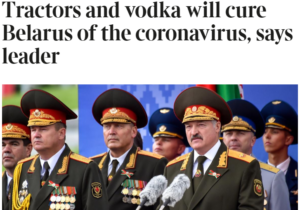The Trump administration on Monday declined to tighten controls on industrial soot emissions, disregarding an emerging scientific link between dirty air and Covid-19 death rates.
In one of the final policy moves of an administration that has spent the past four years weakening or rolling back more than 100 environmental regulations, the Environmental Protection Agency completed a regulation that keeps in place the current rules on tiny, lung-damaging industrial particles, known as PM 2.5, instead of strengthening them, even though the agency’s own scientists have warned of the links between the pollutants and respiratory illness.
E.P.A. administrator Andrew Wheeler is expected to announce the rule this afternoon on a telephone call to reporters, according to a person familiar with the matter. He is scheduled to be joined by the governor and attorney general of West Virginia, who have urged President Trump to loosen rules on coal pollution since he first launched his presidential campaign .
In announcing the proposed rule this spring, Mr. Wheeler said the scientific evidence was insufficient to merit tightening the current emissions rule.
“We believe the current standard is protective of public health,” he said. “Through the five-year review process we’ve identified a lot of uncertainties. Through those uncertainties we’ve identified that the current standard does not need to be changed.”
The proposed rule said that Mr. Wheeler places “little weight on quantitative estimates” of the mortality risk associated with fine soot pollution.
Mr. Trump’s political appointees rushed to finalize the soot rule this fall in hopes of locking in the standard, according to a person familiar with the matter. By law, the E.P.A. is required every five years to review the latest science and update the soot standard. However, legal experts said that nothing could stop the incoming Biden administration from reviewing and tightening the standard sooner than that.
Already, president-elect Joseph R. Biden Jr. is planning to move forward quickly in his first months in office to reinstate and strengthen many of the environmental rules rolled back by Mr. Trump.
“Given the deadly nature of this pollutant, my advice to the new administration would be to very quickly embark on the process to make the standard more stringent,” said Richard Revesz, an expert on environmental law at New York University.
A spokesman for the Biden transition team declined to say whether the Biden administration would do that, but he noted that when the Harvard study came out in April, Mr. Biden wrote on Twitter, “We’re starting to see evidence that long-term exposure to air pollution — which disproportionately affects communities of color & low-income communities — is linked to COVID-19 death rates.”
Mr. Biden’s environmental policy proposals include a pledge to “prioritize strategies and technologies that reduce traditional air pollution in disadvantaged communities.”
A spokesman for the E.P.A. did not respond to emailed questions.
Public health experts say the rule defies scientific research, including the work of the E.P.A.’s own public health experts, which indicates that PM 2.5 pollution contributes to tens of thousands of premature deaths annually, and that even a slight tightening of controls on fine soot could save thousands of American lives.
In April, researchers at Harvard released the first nationwide study linking long-term exposure to PM 2.5 and Covid-19 death rates. The study found that a person living for decades in a county with high levels of fine particulate matter is 15 percent more likely to die from the coronavirus than someone in a region with one unit less of the fine particulate pollution.
Given that scientific record, which would be used in lawsuits against the Trump rule, the new regulation appears to have weak legal standing, and a new Biden-appointed E.P.A. chief would likely have a solid legal justification for tightening the rule, said Mr. Revesz, the environmental law expert.
“The arguments against this rule are strong,” he said. “Even before that Harvard study there was very strong scientific evidence that stronger controls are merited. The Covid crisis reinforced that, but we didn’t need the Covid crisis to tell us that.”
Francesca Dominici, a professor of biostatistics at Harvard who led the study linking PM 2.5 pollution to Covid deaths, said she was “disappointed but not surprised” by the administration’s decision.
Vitto
Covid-19 Expert




